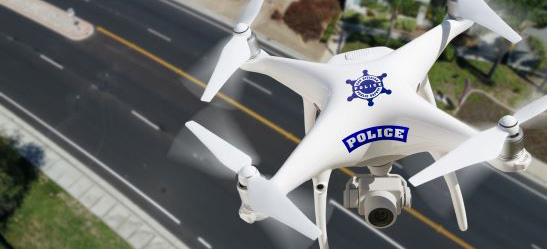Course Detail: SUAS-3000 - sUAS Fundamentals for Public Safety [SUAS 3000]

Overview
In this course students explore how Small Uncrewed Aerial Systems are being used with increasing frequency in public safety efforts, and address how public safety organizations incorporate them into their plans. Students will employ the fundamentals required to integrate SUAS into public safety operations in this four-week online course. Topics include identifying components for a UAS aviation unit for public safety entities, identifying specific agency requirements, and assessing the cost benefit of UAS integration. The course reviews regulatory compliance, certificates of authorization, the role of the community, operator selection, and standard operating procedures.
SUAS 3000 is one of three courses in the sUAS for Public Safety Certificate program.
This course awards 2 Continuing Education Units (CEU) upon completion.
Who Should Attend
Members of public safety (Fire/EMS/Police) organizations involved with uncrewed systems programs and operations are encouraged to enroll.
Course Objectives

Upon completing the course, students should be able to demonstrate a comprehensive and broad-based understanding of:
- Critical components for a UAS aviation unit
- Possible incidents for which UAS can be utilized by any public entity
- Benefits of utilizing UAS will provide compared to manned aircraft, including a cost-benefit analysis
- Sources of funding for creating a new UAS aviation unit
- All federal laws pertaining to UAS, including FAR Part 107, and identify current UAS state laws
- The Federal Aviation Administration Certificate of Authorization (COA) and its purpose, and define the COA application process
- Strategies for fostering community acceptance of and engagement with a new Public Safety UAS aviation unit
- The importance of transparency within a UAS aviation unit
- Characteristics of a good UAS aviation unit team member, and minimum qualifications
- Implementation of a standard operating procedure (SOP), major components, and appropriate SOP review and revision process
Course Information
This is an online asynchronous instructor facilitated course with weekly modules and assignments, but no scheduled meeting times. Students should plan to spend approximately 10-15 hours per week working through the course. Coursework is web-based with no additional software required, although a reliable internet connection is recommended. All courses open 48 business hours in advance of each start date, and must be completed by their scheduled end dates. Digital certificates are available upon successful completion of individual courses. Printed certificates are mailed only upon completion of a full certificate program.

 Cart (0)
Cart (0)